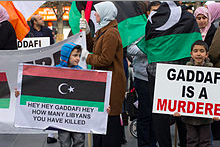The Return Review: Grief Has No Due Date

By: María Teresa Fidalgo-Azize/ Arab America Contributing Writer
Hisham Matar, The Return: Fathers, Sons, And The Land In Between
Joseph Brodsky was right. So was Nabokov and Conrad. They were artists who never returned. Each had tried, in his own way, to cure himself of his country. What you have left behind is dissolved. Return and you will face the absence or defacement of what you treasured. But Dmitri Shostakovich and Boris Pasternak and Naguib Mahfouz were also right: never leave the homeland. Leave and your connections to the source will be severed. You will be like a dead trunk, hard and hollow
Hisham Matar, The Return: Fathers, Sons, And The Land In Between
Until spring of 2012, for over three decades, American-born Libyan writer Hisham Matar had been exiled from his homeland. A homeland that embodied an open wound as it jailed, tortured and murdered his dissident father, Jaballah Matar in the Abu Salim prison- headquarters of human rights violations committed by Muammar Gaddafi’s regime. Hisham Matar and his family are left hostage to an insomnia nightmare- denied knowledge of the date and cause of death of his father. Jaballah Matar’s bones are a ghost, also. There is no resting ground except in liminal memory. In this 2017 Pulitzer-winning memoir, The Return, Matar shares the inability to formalize closure not only in his relationship to his homeland and ancestry but also in his role as a son to a father whose life transcended the linearity of time. Jaballa’s legacy has become a myth. A myth to return to and also a myth that self-devours the possibility of moving on. Matar’s prose streamlines the vastness of his pain into a ravaged physically felt honesty: going back home is to walk on the pavement of an unmarked grave.
Muammar Gaddafi’s Draconian Rule and the 2011 Revolution
Influenced by militant Arab nationalism and socialism, Muammar Gaddafi, chairman of the Revolutionary Command Council, organized a coup ‘d’état in 1969 against the Western-backed Libyan monarchy governed by King Idris. For over forty years, Gaddafi installed a government that terrorized dissent in the name of nationalism and decolonization pride. His ideological compass of government which replaced a formal constitution was The Green Book, a philosophical text that replaces representative democracy for direct democracy and rejects both the tenets of capitalism and communism for nationalized socialism. The arrest of human rights lawyer Fathi Terbil in February 2011 catalyzed a sea of demonstrations against the Libyan government in Benghazi. As a result of rampant human violations against objectors of the Gaddafi regime, the United Nations interfered in the conflict, implementing the United Nations Security Council Resolution 1973 demanding an immediate ceasefire. After six months of warfare, Gaddafi was killed on October 20th 2011 and rebels declared national liberation.
Conclusion: Bereavement Never Walked a Straight Line
Perhaps memorials and all the sacred and secular rituals of mourning across our human history are but failed gestures. The dead live with us. Grief is not a whodunit story or a puzzle to solve, but an active and vibrant enterprise. It is hard honest work.
Hisham Matar, The Return: Fathers, Sons And The Land In Between
On the 12th of March 1990, Hisham Matar’s father was abducted. Matar was just 19 years old. In the chapter Maximillian, Matar describes how his mourning moves beyond the torment of ignorance of his father’s hour and place of death, as grief is not sealed with questionnaire answers. From visiting the National Gallery in London to café visits with former inmates of Abu Salim prison, Matar explains how regardless of his stay in Cairo, Rome, Nairobi, and London, places uprooted from home, grief, his father, and home track him down. Hence, he asks himself where he could fully belong. Despite there being no punctuating verbalized aggression to Matar’s expressions of grief when reading The Return, a sensation of emotional turbulence elapses. We do not know if he ever wishes to seal the wound or leave it everlastingly open- a rebuttal against making amends with unfinished business. It is here where Hisham Matar’s memoir stands among the greats of literature.
The Return’s unadulterated sincerity never impoverished by recounts of self-pity or verbose sentimentality belongs within the contemporary cannon of English literature. The surrogate language for a man who on occasion has no country.
Works Cited:
“From the Faculty Lounge: Art and Memoir.” YouTube, Barnard College , 6 Apr. 2017, www.youtube.com/watch?v=fSOEmIQiBvE.
Kakutani, Michiko. “Review: ‘The Return,’ a Son’s Pained Search for a Missing Father.” The New York Times , 27 June 2017, www.nytimes.com/2016/06/28/books/review-the-return-a-sons-pained-search-for-a-missing-father.html.
“Libya Facts and Figures.” Edited by Adam Zeidan , Encyclopædia Britannica, Encyclopædia Britannica, inc., www.britannica.com/event/Libya-Revolt-of-2011/Libya-facts-and-figures.
Matar, Hisham. The Return: Fathers, Sons And The Land In Between . Random House , 2017.
Check out our blog here!









